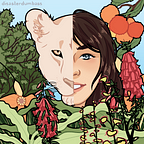SCIENCE STORIES | ANIMAL BEHAVIOURS
Do dogs mourn each other?
It is increasingly common to have more than one dog, but we know little about how the death of one affects the other one.
I used to petsit a pair of dogs from one owner. One of them was very, very old. The owner eventually bought a puppy because she didn't want the younger of her two dogs to be alone when the old one died. She hoped having a new friend in the group would help lessen the loss. But do we really know how dogs react when one of their "pack" dies?
A new study, published in the journal Scientific Reports, sheds some light on this challenging issue. It is difficult not only because of its topic, a beloved pet's death. It is also complicated because there are a lot of confounding variables affecting the outcome we see. That is, there are many things interacting with how our dogs behave and how we interpret their behaviours.
Disentangling a complicated issue
For example, we need to distinguish grief from death from behaviours related to the separation from a companion dog (that is, the dog may be sad because their buddy is not with them, but not from a "realization" that they have died).
Another issue is how our behaviour as pet owners affects our dogs. It is well documented that dogs respond and are influenced by our moods and behaviours. So it is not difficult to imagine how a dog owner's grief can affect their dogs. In which case… Are the dogs reacting to our behaviours, the separation from a group member, or their death?
As you can see, all of these factors accumulate on top of each other. But the recent study was able to disentangle them as best as possible using a questionnaire that assessed a myriad of things, including pet distress, pet attachment, animal welfare and consciousness beliefs, and individuals' views on deaths.
Not quite grief…
They found that although dogs display changes in their behaviour when a dog mate dies, these cannot be said to be a form of "grief". At least, not like we understand death and the grief process.
A vital step to distinguish general separation-related behaviours from death-related grief is if the dogs who witnessed the dead body behaved differently from dogs who never got to see the dead body.
This study obtained the responses of 426 dog owners who owned at least two dogs, one of which died. After compiling and analyzing the results, researchers found that whether the surviving dog was shown the body and allowed to interact with it or not, there was no change in their behaviour. That is, "proof of death" didn't change the behaviours of the dogs later on.
Grief or not, your dog's behaviour will likely change
Most dog owners probably didn't need a scientific study to tell them this, but at least, now science confirms it.
The tighter the relationship between dogs, the more changes you can expect in your dog’s behaviours after one of them dies.
The researchers found that how both dogs interacted was very influential in how the surviving dog behaved. For example, dogs that shared their food, played with or groomed each other were more likely to display behaviours such as playing less, sleeping more, and eating less. Importantly, how long had both dogs lived together did not influence how much the death of a companion affected them.
The researchers concluded that while they cannot confirm dogs experience grief, there is much yet to be learned about how our dogs deal with death experiences in their environment and how can we support their emotional needs.
